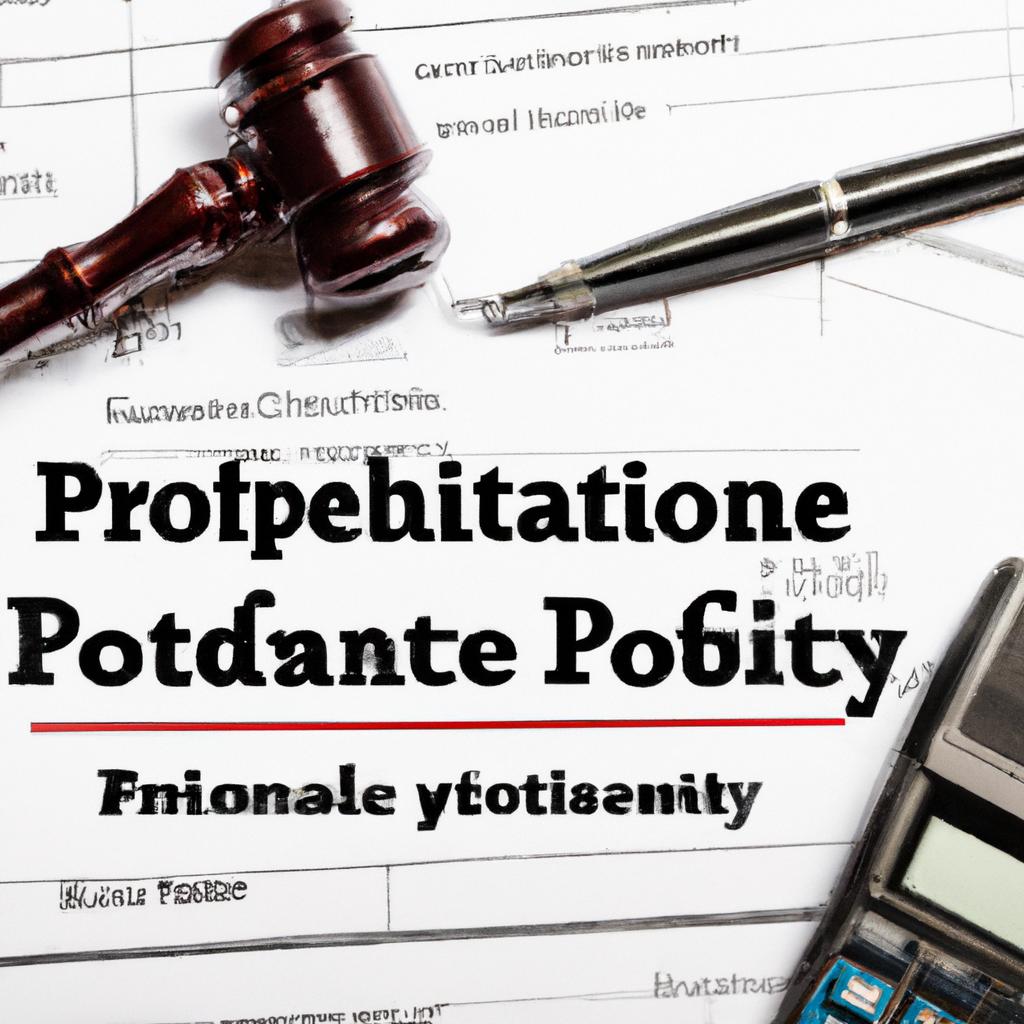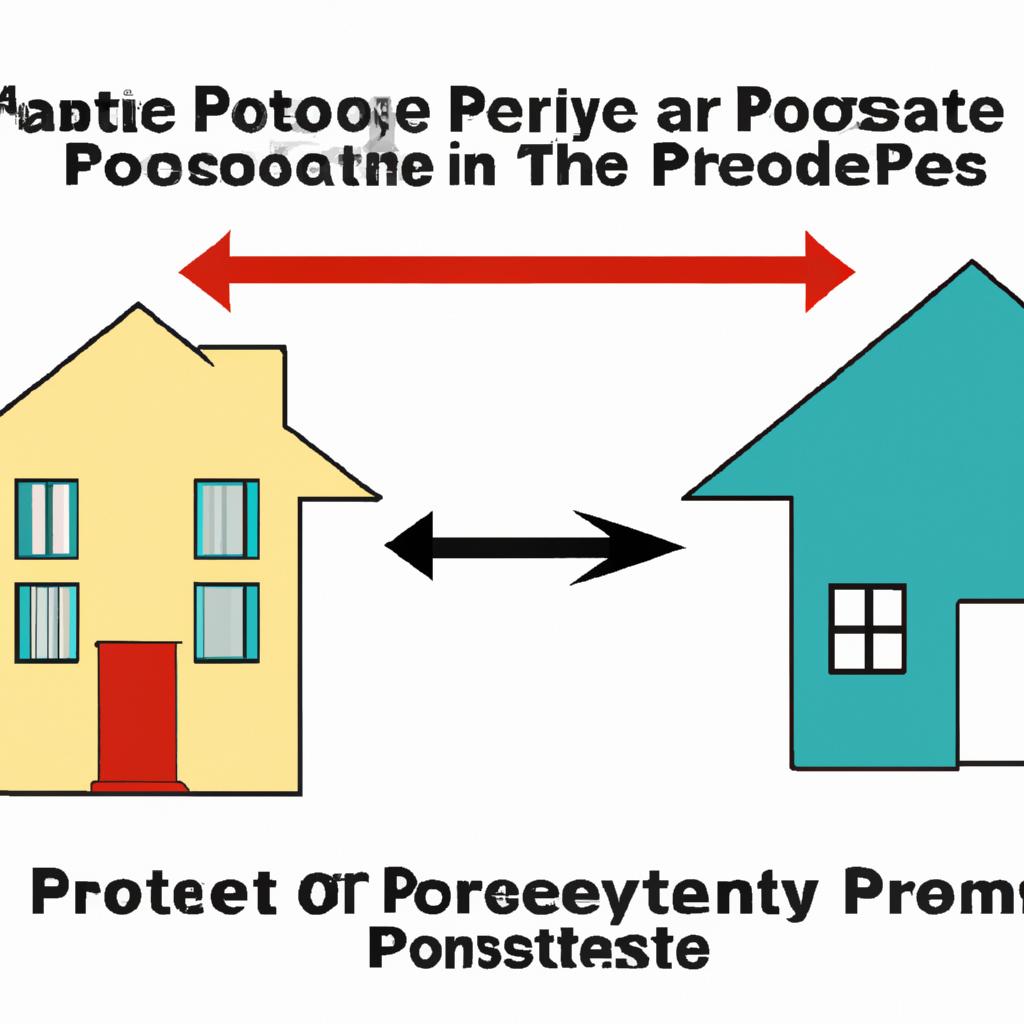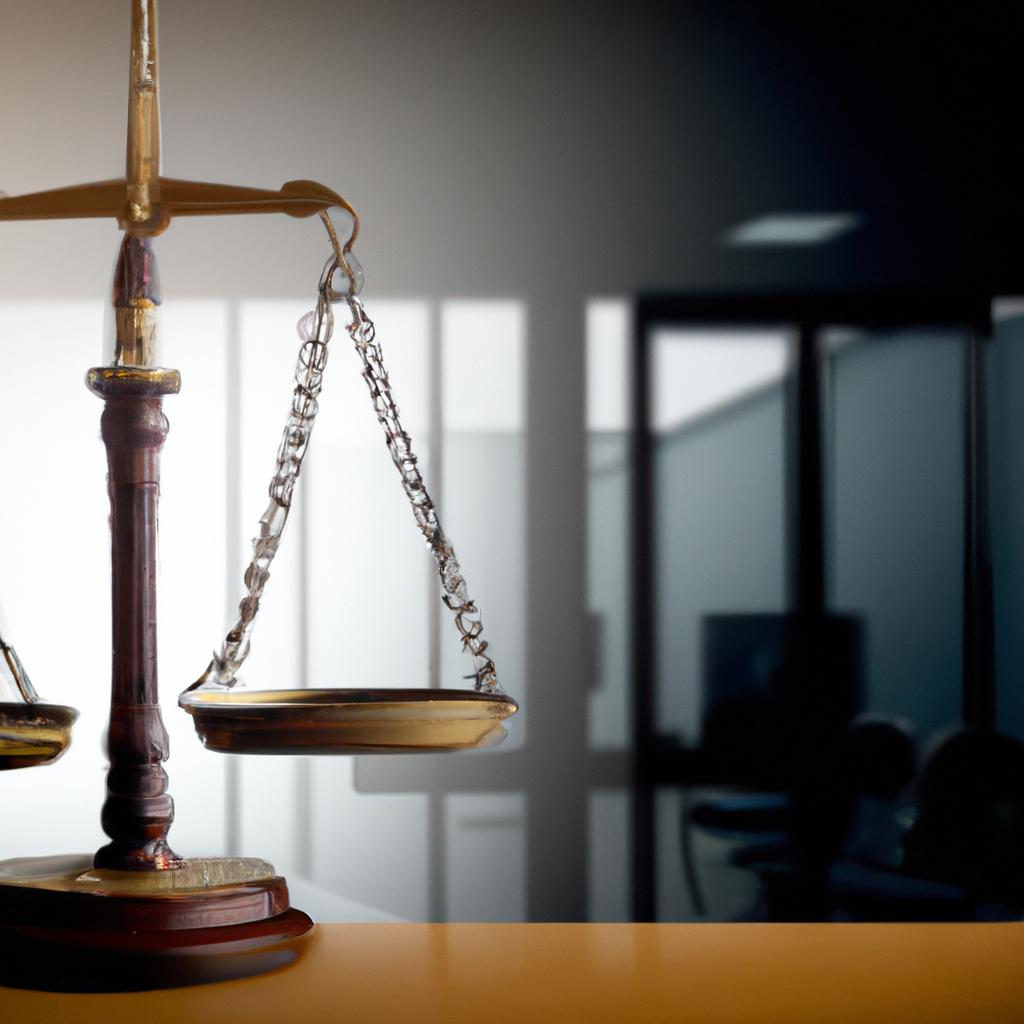In the intricate web of estate administration, navigating the complexities of probate can often leave individuals bewildered and uncertain about the fate of their loved one’s property. At Morgan Legal Group, situated in the bustling heart of New York City, we specialize in unraveling the intricacies of probate proceedings to provide clarity and guidance in determining the destiny of property post-probate. Join us as we delve into the crucial question: what happens to property after probate
Understanding the Probate Process for Property Distribution
Upon completion of the probate process, the deceased individual’s property is ready for distribution. This stage involves the allocation of assets to the beneficiaries as outlined in the decedent’s will. It is important to note that the distribution of property is subject to the probate court’s approval, ensuring that all legal requirements are met.
During the property distribution phase, the executor of the estate plays a crucial role in overseeing the transfer of assets. This includes identifying and valuing the estate’s assets, settling any outstanding debts or taxes, and ultimately distributing the remaining property to the designated beneficiaries. Through meticulous record-keeping and adherence to probate laws, the executor ensures a smooth and fair distribution process.

Key Factors Influencing Property Distribution After Probate
When it comes to the distribution of property after probate, there are several key factors that come into play. Understanding these factors is crucial for ensuring that the wishes of the deceased are carried out effectively. One major factor is the presence of a valid will. If the deceased had a will in place, the property distribution will typically be carried out according to the instructions laid out in the will. However, if there is no will or if the will is deemed to be invalid, the distribution of property will be determined by state laws.
Another important factor influencing property distribution after probate is the presence of any outstanding debts or liabilities. Before any property can be distributed to beneficiaries, creditors must be paid off from the deceased’s estate. This can have a significant impact on the distribution of property, as creditors must be given priority over beneficiaries. Additionally, the type of property involved can also influence how it is distributed. For example, jointly owned property may bypass probate altogether and go directly to the surviving owner.

Strategies to Expedite Property Transfer Post-Probate
When dealing with the transfer of property post-probate, there are several strategies that can help expedite the process and ensure a smooth transition of assets. One effective strategy is to clearly outline the distribution of property in the decedent’s will or trust. This can help avoid confusion and potential disputes among heirs down the line. Additionally, working with an experienced estate planning attorney can help navigate the complexities of probate and ensure that all necessary legal requirements are met.
Another strategy to expedite property transfer post-probate is to consider utilizing non-probate transfers for certain assets. This can include assets held in joint tenancy, assets with beneficiary designations, or assets held in a living trust. By utilizing these alternative transfer methods, you can potentially avoid the lengthy probate process altogether and ensure a quicker distribution of assets to beneficiaries. Overall, proper planning and proactive measures can help streamline the property transfer process and provide peace of mind for all parties involved.

Legal Considerations for Maximizing Property Inheritance
Once the probate process is complete, the distribution of property will depend on various factors. It is crucial to understand the legal considerations that come into play to maximize property inheritance. By being informed and prepared, individuals can take proactive steps to ensure that their assets are distributed according to their wishes.
- Executor Responsibilities: The executor of the estate plays a key role in overseeing the distribution of assets. They are responsible for ensuring that all debts and taxes are paid before distributing property to beneficiaries.
- Asset Protection: Understanding how different types of assets are classified can impact how they are distributed after probate. It is important to work with legal professionals to protect assets and minimize potential challenges during the inheritance process.
Q&A
Q: What is probate and why is it necessary?
A: Probate is the legal process of administering a deceased person’s estate. It is necessary to ensure that the deceased person’s assets are distributed properly according to their will or state laws.
Q: What happens to property after probate is complete?
A: After probate is complete, the deceased person’s property is transferred to their beneficiaries or heirs. This may involve selling the property and distributing the proceeds, transferring ownership of the property, or a combination of both.
Q: Who is responsible for managing the property during probate?
A: The executor of the deceased person’s estate is responsible for managing the property during probate. This includes gathering and inventorying the deceased person’s assets, paying debts and taxes, and distributing the property to beneficiaries.
Q: Can property be sold during the probate process?
A: Yes, property can be sold during the probate process if necessary to pay debts or expenses of the estate. The executor may also choose to sell property if it is in the best interest of the beneficiaries.
Q: What happens if there is no will in place?
A: If there is no will in place, the deceased person’s property will be distributed according to state laws of intestacy. This means the property will be distributed to the deceased person’s closest living relatives, such as spouses, children, parents, or siblings.
In Summary
In conclusion, navigating the process of probate can be a daunting task, especially when it comes to determining what happens to property after the legal proceedings are completed. Whether the property is passed on to heirs, sold to pay off debts, or dispersed in accordance with a will, understanding the intricacies of probate is essential in ensuring a smooth transition of assets. By seeking the guidance of legal professionals and staying informed throughout the process, individuals can alleviate some of the uncertainty that comes with estate planning. Ultimately, the fate of property after probate rests in the hands of the court, but with careful planning and attention to detail, individuals can ensure their assets are distributed according to their wishes.
 What Happens to Property After Probate: Understanding the Process
What Happens to Property After Probate: Understanding the Process
Losing a loved one is a difficult and emotional time, and the last thing anyone wants to think about is the financial and legal implications of their passing. However, it’s important to understand what happens to your loved one’s property after they pass away. Unfortunately, this process can be complicated and lengthy, making it even more challenging to navigate during a time of grieving. This is where the legal process of probate comes into play.
In this article, we’ll dive into the intricacies of what happens to property after probate and provide you with all the necessary information to understand this often complex process.
What is Probate?
First, let’s define the term and understand what probate means. Probate is the legal process of administering a deceased person’s estate, including their assets and properties. This process is necessary to distribute the deceased’s assets to their beneficiaries as per their will or according to state laws if there is no will in place.
When someone dies, their property, including real estate, bank accounts, and personal belongings, become known as their “estate.” Probate is required to transfer this estate to their heirs, who can be family members, friends, or even charitable organizations.
What Happens to Property During Probate?
During the probate process, the court will appoint an executor – a personal representative – to handle the deceased’s estate. The executor is responsible for managing the estate, paying any outstanding debts, and distributing assets to the beneficiaries. If there is no will, the court will appoint an administrator to handle these tasks.
The executor must locate all of the deceased’s assets, determine their value, and collect any outstanding debts or taxes. They will then distribute the remaining assets to the beneficiaries as per the will’s instructions or state laws. This process can be lengthy and complicated and often requires the guidance of an attorney.
What Happens to Real Estate During Probate?
Real estate is a significant aspect of a person’s estate and can be a source of confusion and conflict during the probate process. If the deceased owned real estate at the time of their death, it will typically be included in the probate process.
If the property is owned solely by the deceased, it will go through probate, and the executor or administrator will be responsible for handling its transfer. However, if the property is held in a trust, joint ownership with someone else, or has a designated beneficiary, it will likely bypass probate and transfer directly to the beneficiary.
If the deceased’s property is going through probate, the executor will need to appraise it and determine its value. If the property is to be sold, the executor must obtain permission from the court first. Once the sale is completed, the proceeds will be used to pay off any outstanding debts and taxes, with the remaining amount being distributed to the beneficiaries.
It’s important to note that if there is a mortgage or liens on the property, the lender or lien holder will have the first right to the sale proceeds. If the property is being inherited by multiple beneficiaries, the executor may have to sell the property and split the proceeds amongst them.
What Happens if There is No Will?
If a person passes away without a will, also known as dying intestate, the probate process will follow state laws for distributing the estate’s assets. In this case, the state’s intestate succession laws will determine who will inherit the deceased’s property.
These laws vary by state but typically favor the deceased’s spouse, children, and other close relatives. If the deceased does not have any living relatives, their property will likely go to the state. It’s essential to have a will in place to ensure your property goes to the people or causes you choose.
How Long Does the Probate Process Take?
The probate process can vary in length, depending on the complexity of the estate and any potential conflicts that may arise. In straightforward cases, probate can take anywhere from a few months to a year. However, if there are disputes or complications, it can take years to settle.
The probate process may also depend on the state you live in, as some states have streamline procedures for smaller estates. Additionally, having a well-drafted will and an experienced attorney can speed up the probate process significantly.
Benefits and Practical Tips
While probate can be a lengthy and complicated process, there are some benefits to going through it, such as:
1. Ensures an orderly distribution of assets
2. Allows for addressing any outstanding debts
3. Provides legal protection for all parties involved, particularly the executor
If you find yourself in the position of being an executor or administrator of someone’s estate, here are some practical tips to help you navigate the probate process smoothly:
1. Consult with an experienced probate attorney for guidance
2. Keep detailed records of all transactions and communications
3. Communicate openly and frequently with the beneficiaries
4. Seek approval from the court before making any major decisions or changes to the estate
Our First-Hand Experience with Probate
As a family who recently went through the probate process, we understand the complexities and challenges it can bring. After our father’s passing, our family had to go through probate to transfer his assets, including his home, to us three siblings.
The process was lengthy and required a great deal of paperwork and patience. However, with the help of our attorney, we were able to navigate it successfully and distribute our father’s assets as per his wishes.
In Conclusion
While the probate process may seem daunting, it’s a necessary step to ensure a deceased person’s estate is managed and distributed correctly. Real estate is an essential aspect of the probate process, and it’s crucial to understand how it will be handled and distributed.
Having a well-drafted will and an experienced attorney can help streamline the probate process significantly. We hope this article has provided you with valuable information and insights into what happens to property after probate. Remember, seeking professional guidance is always recommended to ensure a smooth and efficient probate process.

